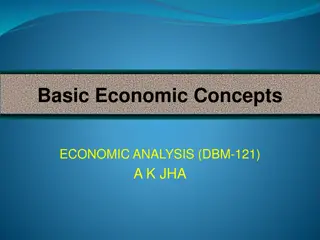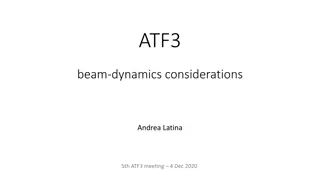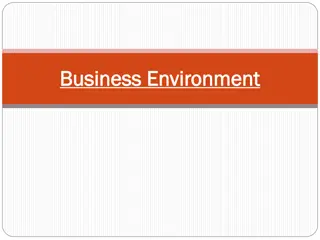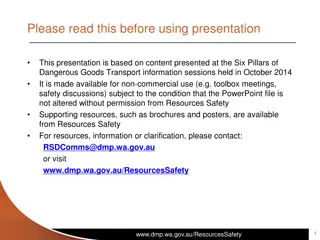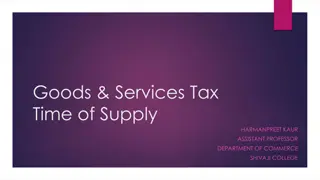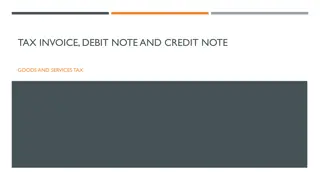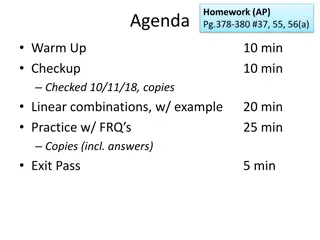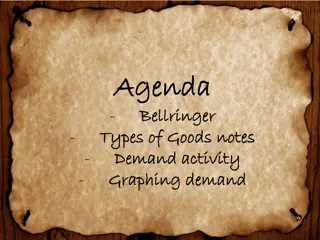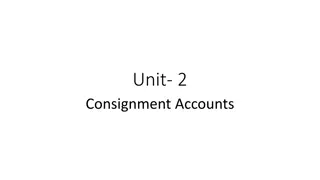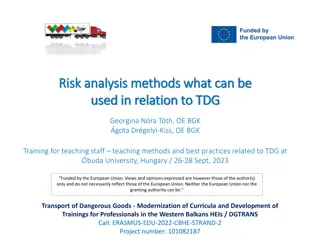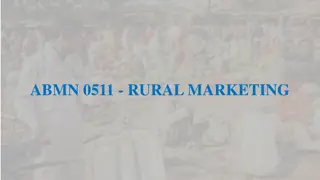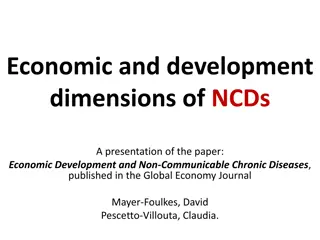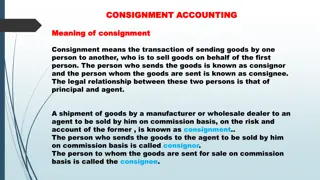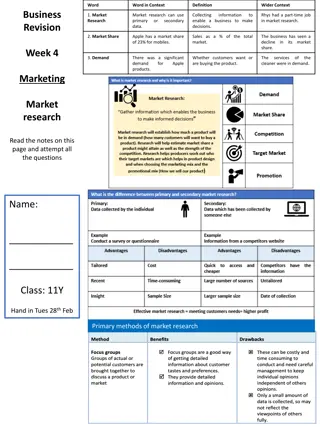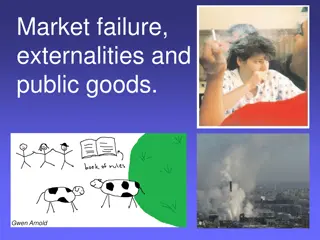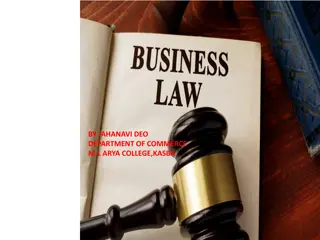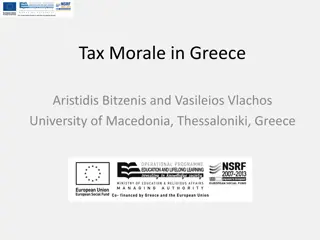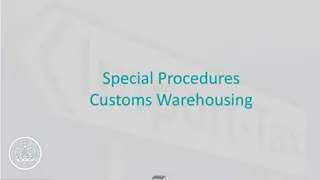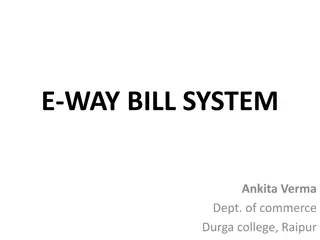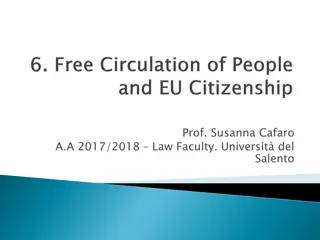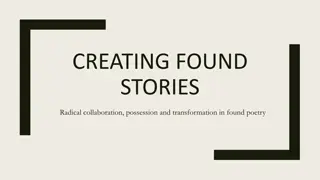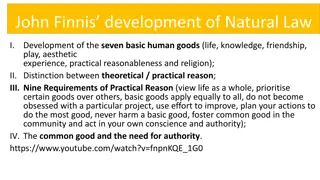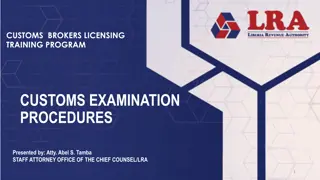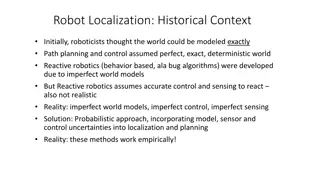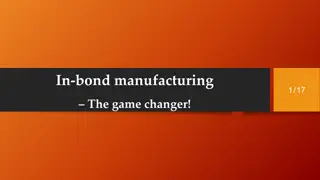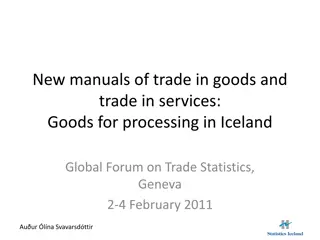Understanding Public Goods and Market Imperfections
Public goods are non-rival and non-excludable in consumption, posing challenges for free market provision due to free-riding. Market imperfections like monopoly and externalities deviate from perfect competition assumptions, impacting economic efficiency. Government intervention can address public goods provision issues by forcing taxpayers to contribute, potentially improving market welfare.
Download Presentation

Please find below an Image/Link to download the presentation.
The content on the website is provided AS IS for your information and personal use only. It may not be sold, licensed, or shared on other websites without obtaining consent from the author. Download presentation by click this link. If you encounter any issues during the download, it is possible that the publisher has removed the file from their server.
E N D
Presentation Transcript
Public Goods Public Goods Steven Suranovic Steven Suranovic George Washington University George Washington University
Market Imperfections Market Imperfections or or Market Failures Market Failures Any deviation from the assumptions of perfect competition Examples include Monopoly/Oligopoly Monopsony/Oligopsony Public Goods Externalities Common Resources Imperfect Information Unemployment Government policies
Public Goods Public Goods A public good is both non-rival and non-excludable in consumption. Rivalry vs Non-Rivalry Rival Examples Food, Clothing, Housing, congested roads A Rival good or service when one person s use prevents another from using it A Non-rival good or service when one person s use does not prevent another person from using it simultaneously Non-Rival Examples Lighthouse service, uncongested roads
Public Goods Public Goods A public good is both non-rival and non-excludable in consumption. Excludability vs. Non-Excludability Excludable Examples Food, Clothing, Housing, toll roads An excludable good or service when it is possible to restrict access or use A Non-excludable good or service when it is not possible to restrict access or use Non-Excludable Examples Lighthouse service, freeways
Public Good Provision Public good provision is difficult in a free market because firms find it difficult to solicit payment from consumers who can easily free ride. Free riding occurs when someone receives a benefit without having paid for it Taxi ride from airport with a friend on company expense Watching neighbor s backyard fireworks show Wikipedia Listening to National Public Radio without contributing
Public Good Provision It is the non-rival and non-excludable nature of a public good that makes free-riding easier Private firms would under-supply a public good because of free riding However, if government provides public goods, then they can force taxpayers to pay and eliminate the free rider problem Government provision of public goods can (not will) raise supply to the optimal level Thus, government provision of a public good can (not will) raise market welfare, i.e., improve economic efficiency.
Public Good Provision Example Suppose there are 6 farms who sometimes have their crops stolen by bandits If they build a wall, it will prevent the theft Let the values in (.) represent the $ value willingness to pay for a wall for each farm
Public Good Provision Example Protection from Roving Bandits (Mancur Olson) Small communities need protection from bandits who rape, pillage, and plunder See movies: Seven Samurai or Magnificent Seven Carcassonne, France
Public Good Provision Example Suppose an individual wall (blue), protecting one farm costs $20 to build Suppose a large external wall (green) costs $50 to build Next consider methods to improve economic efficiency
Public Good Provision Example Individual Walls Suppose each farm builds their own individual wall Total benefits = (10 + 15 + .) = $65 Total cost = 6 x $20 = $120 Profit = 65 120 = - $55 Won t be chosen because each farm loses and economic efficiency falls
Public Good Provision Example Collective Action 1 One farmer solicits contributions from the farmers Suppose Farms A-D contribute their maximum minus $1 Farms E-F free ride, they refuse to pay anything
Public Good Provision Example Collective Action Continued Total Payment = (3x14) + 9 = $51 Net Benefit for A-D = $4 Net Benefit for E-F = $10 Suppose $1 extra payment used for a post-construction party with E-F not invited! Economically efficient because NB > 0, but will not be considered completely just or fair
Public Good Provision Example Benevolent Government A government implements a $8.33 per farm tax (8.33 x 6 = $50) to finance a green wall Net benefits = 65 50 = $15 Farms A-D happy with government Farms E-F not happy with government In a democracy, farmers would vote for this tax
Public Good Provision Example Corrupt Government A government implements a $20 per farm tax (20 x 6 = $120) to finance a green wall Uses the extra $70 for government officials perks Net farm benefits = 65 120 = - $55 All Farms unhappy Unjust and unfair No farms would vote for this
Government: Good, Bad or Unnecessary These examples show how government provision of public goods can solve the free rider problem and improve economic efficiency (good) Private collective action provision might be possible but could create injustices because some may free ride (unnecessary) However, government must be constrained in its use of power. A corrupt government can overtax and transfer money for the benefit of the government officials themselves. (bad) Note that the corrupt government needs the wall too so its citizens will produce and retain more for them to confiscate
Government: Good, Bad or Unnecessary? Consider early human societies 5-10,000 years ago. Farming communities needed protection against internal community theft and external bandits. What if Roving Bandits decide to settle down and become Stationary Bandits (early government)? (Mancur Olson) Can control population with ability and willingness to use superior force Can offer internal and external protections Must leave citizens free enough to produce a taxable surplus Internal law and order important for economic efficiency Tribute (i.e. taxes) paid to the rulers who become kings, tyrants, or gods
Government: Good, Bad or Unnecessary? How to prevent government tyranny? Advent of democracy offers one method Leaders are accountable to the people Leaders reflect the will of the people Modern democracy arose in response to oppression Subsequent freedoms may be responsible for the Great Enrichment the dramatic increase in living standards with industrialization
Government: Good, Bad or Unnecessary? Purpose of a democratic government Provision of public goods including, internal police, (maintain internal order) standing army to protect against foreign threats, judicial system to adjudicate disputes, Provision of roads and parks, Enforcement of laws against violence, deception, etc.
Government: Good, Bad or Unnecessary? What is the right amount of government? Too little government public goods insufficiently supplied Too much government potential tyranny Loss of individual freedoms, exploitation of citizens by a wealthy elite It is reasonable to debate the right level of government But also important is what actions the government takes Promote the General interests or the Special Interests? Listen to all equally or listen more to wealthy? Promote monopoly, or anti-monopoly?
Ethics in the Provision of National Security How to induce participation in an army? Pure self-interest may not produce any volunteers Patriotism / Loyalty: inspire duty to country Hierarchy acceptance: follow the orders of superiors Courage: courageous behavior inspires a willingness to take risk for the betterment of the group (even risking one s life) These traits are promoted in families and businesses too
Ethics in the Provision of National Security Patriotism, Hierarchy and Courage are also traits that are beneficial to a stationary bandit, a tyrant, or a leader determined to conquer others (Hitler, Alexander the Great, Genghis Khan, etc.) These ethical principles should be subordinate (or secondary) to earlier ones; namely the avoidance of theft, violence and deception, and the promotion of individual market freedom Too often loyalty is touted as the highest ethic why?
Ethics in the Provision of National Security Patriotism, Hierarchy and Courage can facilitate the production of the public good, national security Patriotism, Hierarchy and Courage is also promoted by tyrants to facilitate theft/domination over others Loyalty and Hierarchy can facilitate the operation of business and improve organizational efficiency Loyalty and Hierarchy can also facilitate the promotion of bad business behavior involving theft, deception, or monopolization



